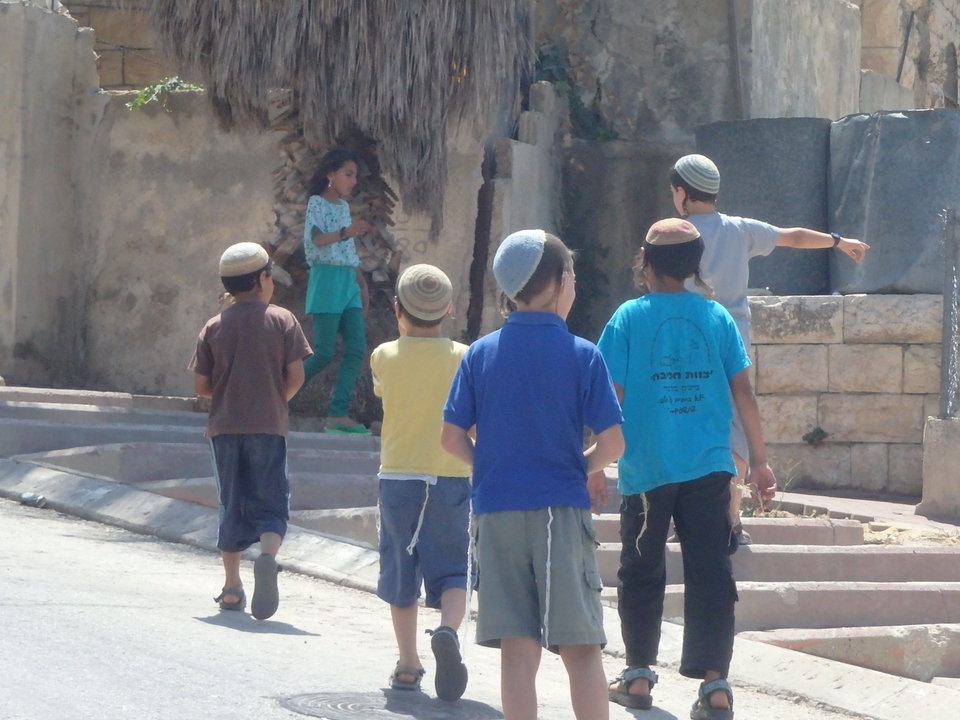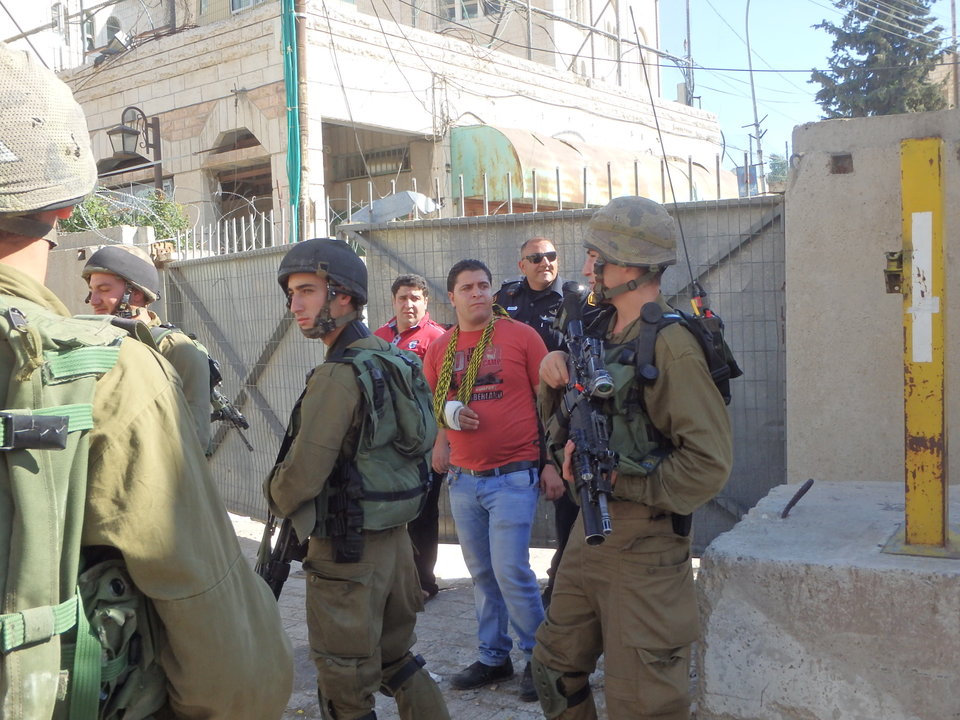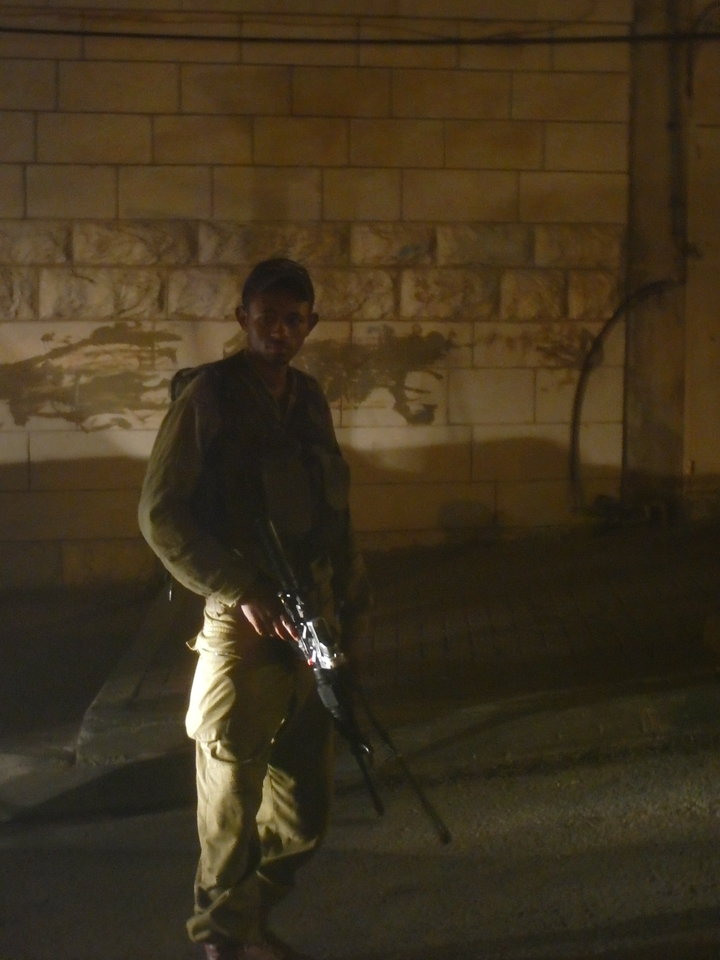Tag: Settler harassment
-
Video: Free the bubbles
30th July 2014 | International Solidarity Movement, Khalil team | Hebron, Occupied Palestine At approximately 1 pm on July 28th, international volunteers made giant bubbles with Palestinian children to celebrate Eid, in Tel Rumeida, al-Khalil (Hebron). Several settlers passed by in their cars and were visibly annoyed, and two stopped to complain to the Israeli soldiers…
-
Settlers break in to Palestinian home, Palestinians arrested
25th July 2014 | International Solidarity Movement, Khalil team | Hebron, Occupied Palestine Israeli settlers in the H2 (under full Israeli military civil and security control) area of Hebron, forced entry into a basement and passage connected to the home of a Palestinian, Abed Sider, which is bordered by a sealed off building now occupied by…
-
Palestinians threatened by settler and then detained by soldiers
23rd July 2014 | International Solidarity Movement, Vern | Hebron, Occupied Palestine At approximately 23:30 on the night of the 21st July, I noticed a group of Israeli soldiers detain four Palestinian men near our apartment. The men detained were Ahmed, Izzat, Anas, and Muhammad. They were ordered to sit on the ground by several armed…



